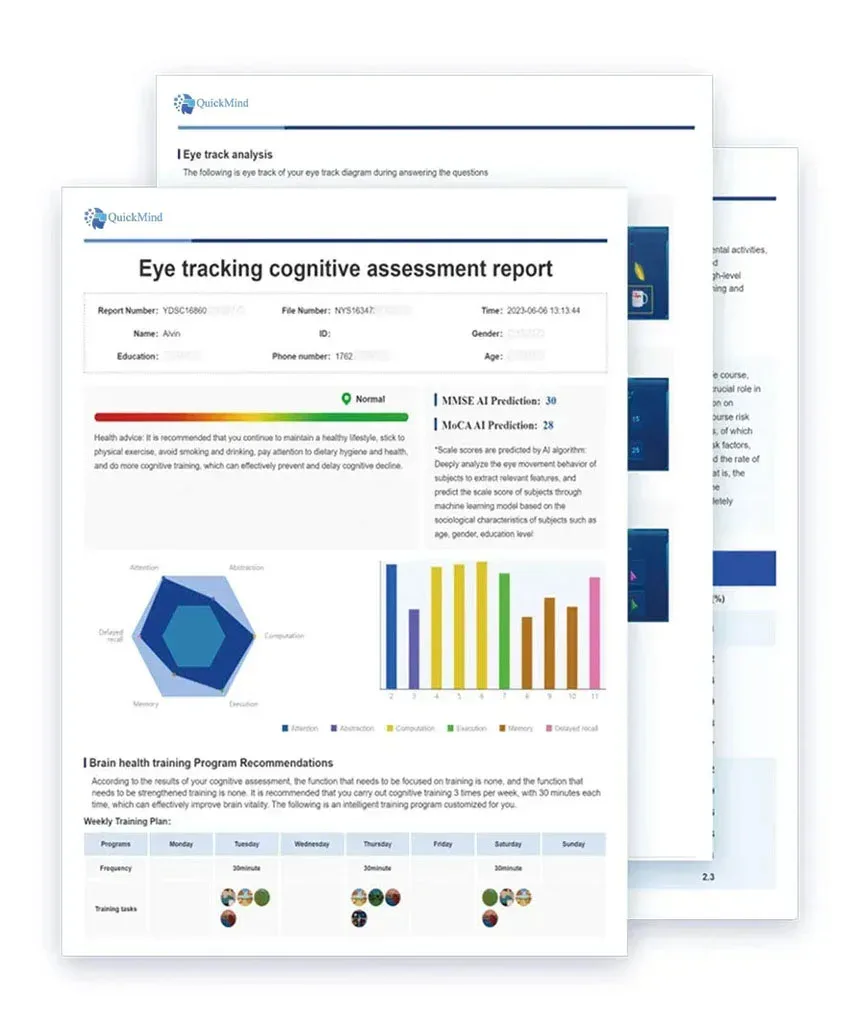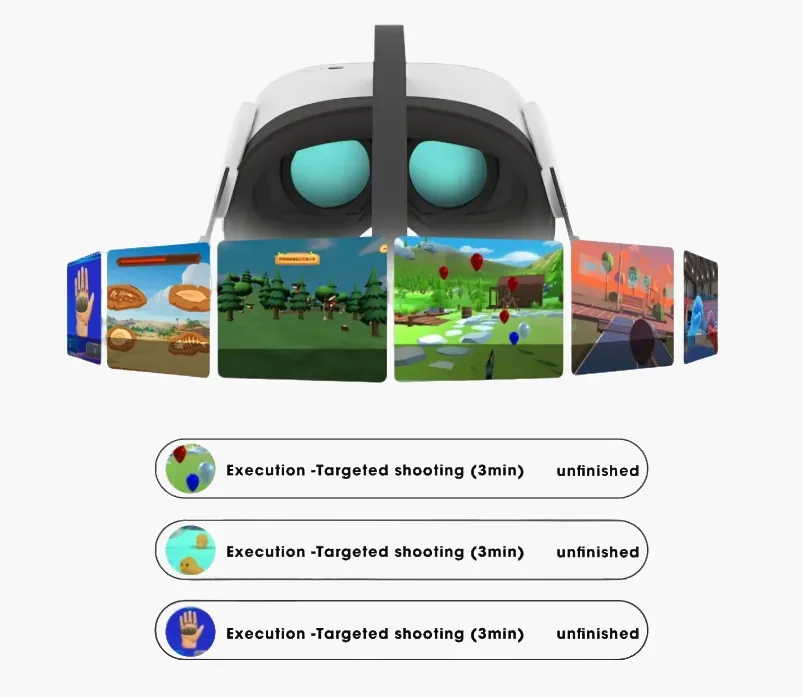optimized neurological performance aids cutting-edge digital therapy for neurological disorders?

Emerging examinations reveals that virtual simulation treatment can significantly refine the states of people managing memory disorders. By moving them to peaceful places, VR grants a special avenue for neural stimulation, sentimental adjustment, and collective involvement. A variety of inquiries have demonstrated that VR therapy can reduce turmoil, nervousness, and gloom in dementia patients individuals while also elevating their recall, mindfulness, and linguistic talents.
- VR supports patients with dementia to reexperience dear memories through hands-on animations.
- Likewise, it can offer a securely controlled and encouraging space for relational participation, cultivating a notion of relationship and inclusion.
- Clinicians assert that VR therapy has the chance to innovate dementia treatment by yielding new and progressive strategies to deal with the intricate difficulties faced by individuals coping with this ailment.
Computerized Brain Enhancement Methods for Alzheimer's
Emerging virtual approaches are exhibiting benefits in the domain of neural stimulation for individuals experiencing Alzheimer syndrome. These software tap into digital innovation to improve brain capability and conceivably retard the spread of the condition. Gamified regimens, personalized assistance, and neuropsychological training are some demonstrations of approaches being analyzed in this emerging sector. While investigations are continuing, digital therapeutics offer a supportive option for improving the quality of those suffering from Alzheimer syndrome.Navigating Reality Through Virtual Landscapes: A Novel Approach to Alzheimer's Treatment
Involving participants struggling with Alzheimer's disease, the incremental erosion of mental capacity and brain functions can notably impact their aptitude to interact with the external setting. This harmful state often produces in detachment, distress, and a limited self-perception. Contemporary enhancements in virtual reality technology present a trailblazing option to tackle these issues by constructing immersive worlds that can trigger the brain and restore cognitive function.
Virtual scenario worlds configured specifically for patients diagnosed with Alzheimer's can transport them in recognizable contexts, such as their old family house or a beloved garden, triggering positive memories and lessening anxiety. Through interactive tasks, these virtual places can also engage cognitive abilities like recall, mindfulness, and judgment.
The positive effects of virtual reality in Alzheimer's therapy are considerable. Early investigations have manifested encouraging results, with patients experiencing improvements in cognitive power, mood, and overall quality of life. As this development advances, it holds the key to reshaping the way we approach Alzheimer's disease, granting a new pathway for management and advocacy.
Computer-Aided Reminiscence for Alzheimer's Victims
Reminiscence therapy is a commonly used technique used to improve cognitive function and affective health in individuals with Alzheimer's disease. This conventional form of therapy involves stimulating patients to remember past experiences, often through communication. However, a radical approach is emerging: VR-mediated reminiscence therapy.
This immersive solution utilizes virtual reality headsets to relocate patients in convincing environments that trigger memories from their past. By engaging in these virtual scenes, individuals with Alzheimer's can associate with their past in a powerful way.
VR-Based Approaches for Memory and Cognitive Enhancement in Dementia
Virtual reality (VR) is emerging as a promising instrument in the fight against dementia, delivering advanced ways to invigorate memory and cognition. By constructing immersive platforms, VR can facilitate individuals with dementia retrieve memories, engage in meaningful activities, and elevate cognitive faculties. Studies have revealed that VR interventions can lead to serious improvements in memory recall, attention, and cognitive awareness. Moreover, VR provides a harmless and supportive space for individuals with dementia to display, reducing feelings of isolation and nervousness.
- In addition, VR can be personalized to individual needs and preferences, making possible amplified levels of interaction.
- In spite of the promise of VR, more research is needed to fully understand its long-term results in dementia care.
Reawakening Past, Forging Connections: VR's Power in Alzheimer's Socialization
Digital immersive environments is emerging as a state-of-the-art solution in the realm of neural degeneration. By producing involving and dynamic worlds, VR has the possibility to rekindle memories, cultivate social interaction, and raise the overall quality of life for participants living with Alzheimer's. Arguably the most promising aspects of VR is its ability to transport users to vintage places and moments from their past. Whether it's a stroll in a childhood home or a simulation of a beloved holiday, these virtual visits can awaken happy memories and improve cognitive capacity. Furthermore, VR can enable social interaction by connecting individuals with others who share similar pastimes. This can be particularly useful for people with Alzheimer's who may experience challenges with traditional social involvement. By hosting a safe and engaging virtual space, VR can diminish feelings of isolation and loneliness, which are common among people struggling with Cognitive function assessment Alzheimer's. Overall, VR holds immense opportunity for revolutionizing the lives of individuals with Alzheimer's by restoring memories, fortifying connections, and enhancing their quality of life. As technology persists in advance, we can expect even more novel applications of VR in the field of dementia care.Utilizing Cognitive Training: Harnessing VR for Alzheimer's Therapy
Digital virtual environments is rapidly emerging as a disruptive tool in the realm of cognitive training, particularly for clients living with Alzheimer's disease. By immersing patients in interactive and engaging virtual environments, VR-based interventions can boost cognitive functions such as memory, attention, and problem-solving. These games typically incorporate elements of storytelling, exploration, and social interaction, making the training process greatly immersive. Studies have shown that VR-based cognitive training can lead to noticeable improvements in cognitive performance, theoretically delaying the progression of Alzheimer's symptoms. Moreover, VR provides a safe and controlled environment for patients to practice new skills and develop their confidence.
- Game-enhanced procedures in VR training can make it extremely immersive and fun for persons with mental decline.
- VR simulations can offer accurate scenarios that spur and energize cognitive functions.
- Personalized VR experiences can cater to individualized wishes and procedures.
Virtual Reality as a Renewed Opportunity for Dementia Patients
Absorbing digital environments offer a unique and hopeful avenue for subjects undergoing dementia. These systems can transport familiar environments, allowing those affected by cognitive decline to recapture cherished memories and enhance a sense of consolation. By tackling the challenges of dementia, VR contexts have the option to boost quality of life for both users and their guardians.
- Examinations indicate that VR approaches can favorably impact cognitive function, sentimental well-being, and even sensory abilities in individuals with dementia.
- Moreover, VR supplies a safe and organized environment for interaction, reducing the risk of trauma.
- Also, VR can promote social relationships by allowing individuals with dementia to socialize in cyber activities with others.
Virtual Reality as a Tool for Early Detection and Intervention in Alzheimer's Disease
cognitive Alzheimer's illness shows a complex challenge, often staying hidden in its early stages. Despite this, virtual reality (VR) is gaining traction as a state-of-the-art tool for early detection. Through immersive scenarios, VR can measure cognitive operation in ways that traditional methods cannot cope to. This promise allows for fast support strategies, potentially impeding disease progression and increasing the quality of life for persons with Alzheimer's.
- Virtual reality tools assess memory, concentration, and spatial cognition under supervision.
- Bespoke VR applications facilitate interactive mental activity for patients.
- Digital virtual settings create opportunities for people with Alzheimer's to link and participate.
Using Virtual Reality to Improve Linkages and Involvement in Dementia
{In the realm of dementia care, innovative technologies are emerging to advance the lives of patients with cognitive impairments. Virtual reality (VR) is one such mechanism that holds immense capability for bridging the communication and interaction gap often experienced by those with dementia. By offering absorbing computer-generated environments, VR can animate cognitive function, reduce behavioral issues, and ultimately improve the overall well-being of dementia patients.
VR experiences designed for neurodegenerative disease management can range from reflection therapy sessions that transport users back to familiar places and times, to interactive games that promote social interaction and cognitive exercise. Furthermore, VR has the capability to connect individuals with dementia to their loved ones, regardless of physical isolation, fostering a sense of solidarity.
- VR can facilitate in reducing agitation and anxiety by providing a calming and engaging environment.
- Clinical trials have shown that VR interventions can lead to improvements in cognitive function, mood, and social interaction in people affected by dementia.
- As technology continues to progress, we can expect even more innovative and effective
